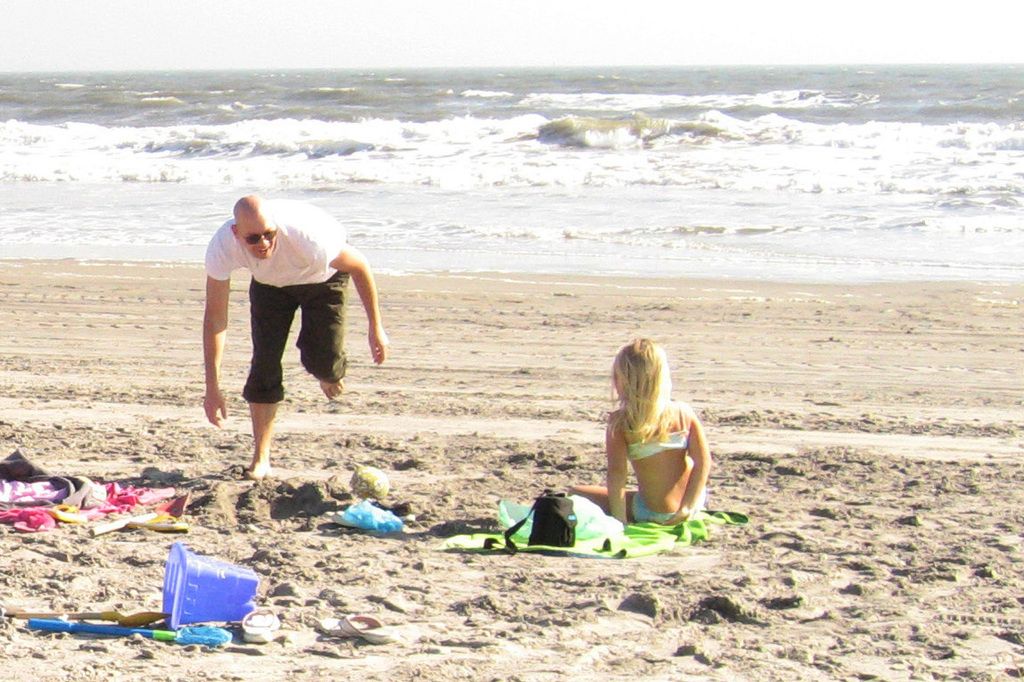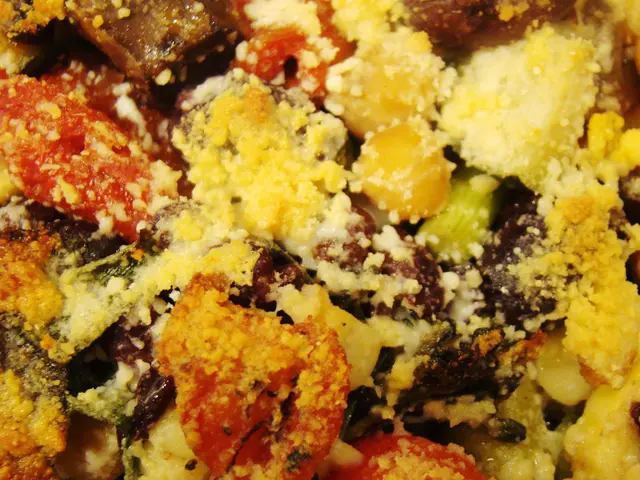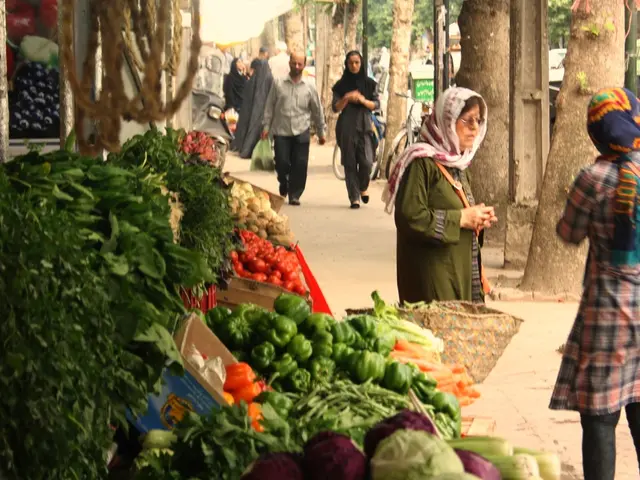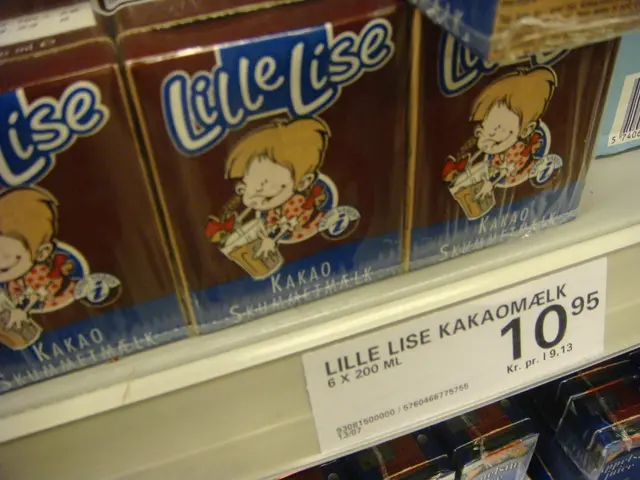Potentially Harmful Items Identified as Primary Causes of Seasonal Child Poisoning by Medical Professionals
Warm Up to Summer with Caution: A Guide for Parents by Kazakh Doctors
Embrace the summer vibes with a touch of caution! That's the message from Kazakh doctors, as they address the season of children's poisonings, largely due to foodborne illnesses. The peak of young patients falling sick from consuming spoiled food is in July, a month often associated with ice creams, fresh berries, and watermelons. Each day, hospitals in the republic are brimming with children in critical condition, fighting to survive.
But why is summer more perilous for kids? Many parents underestimate food poisoning as an inevitable ailment, turning to folk remedies and over-the-counter medication instead of seeking medical help. This hapless approach can lead to grave consequences for a child's health and, in extreme cases, even death, as doctors' warnings echo. Not all parents realize the genuine hazard of intoxication. It's pivotal to determine the root cause before initiating treatment. Symptoms of intoxication can also disguise other afflictions, so self-medication should be shunned in favor of professional medical assistance.
"Summer evokes fond memories from our childhood in adults. We can't help but see the child in each of us when the first warm days arrive. It's only natural to indulge ourselves and our little ones in ice creams, fresh fruits, and berries. However, parents must remain vigilant," says Aliya Turkmenbaeva, the head of the pediatric department at city clinical hospital No. 7's polyclinic.
Ice Cream: A Tempting Trap
Soft ice cream hawked along roadsides and in bustling places is the biggest summer hazard, according to doctors. Vendors are frequently sloppy when it comes to sanitary standards. Waffle cones are displayed uncovered, collecting dirt, car exhaust, and germs from customers lining up.
"Blaming dishonest sellers alone is unjust. Parents share the bulk of responsibility, often handing money to vendors without observing simple hygiene rules, like washing hands before eating," Aliya Turkmenbaeva highlights.
Opt for buying ice cream in stores, where you can scrutinize the product's condition. Stay away from ice cream that has melted and been refrozen. Fruits, berries, and vegetables are other common culprits behind children's food poisoning. Some growers treat their produce with chemicals that form a protective film, which can be harmful when ingested if not removed. Always peel fruits and vegetables before serving them to children. Unwashed produce may harbor harmful bacteria and microorganisms or even parasites.
The Tricky Watermelon and the Misfortunate Samsa
Almaty residents seem to have a special affinity for watermelons. As the largest fruit makes its appearance, watermelons are already flooding the market. Unsuspecting buyers may erroneously assume that vendors are meticulous about sanitary norms. Yet, the watermelon's journey from the counter to the cart remains uncertain, especially the cleanliness of the knife used to cut the fruit.
When purchasing watermelons, pay close attention to their ripeness. Buying unripe watermelons in August is not only premature but also risky for health, as farmers employ nitrates to hasten ripening, causing severe food poisoning.
Caution with Exotic Fruits
Exotic fruits, which travel long distances before reaching Kazakhstan, can also pose a risk. Even fruits sourced locally, such as those grown in personal gardens or on dachas, might be contaminated if they come into contact with rodents, air pollution, or unhygienic conditions during transportation or storage.
"In make-shift markets, it's best to avoid buying food for children," advises Dr. and health lifestyle expert Firuza Smailova.
Beware of Sweetened Beverages
Doctors caution parents not to rely on sugary, carbonated drinks as refreshments. Their risk increases during the summer if storage conditions are compromised. Plastic bottles displayed in retailers' windows can be subjected to direct sunlight for extended periods. Pay heed to the expiration date and avoid purchasing expired products, particularly on questionable markets.
Food poisoning impacts children more adversely than adults, primarily due to lower stomach acidity, underdeveloped gut microflora, rapid toxin absorption, and widespread organ toxicity. Infants and young children, particularly those with fragile immune systems, are especially susceptible. Symptoms include nausea, vomiting, diarrhea, abdominal pain, and, in infants, seizures.
If you suspect food poisoning, promptly seek medical help. Do not administer any medicines or administer potassium permanganate to induce vomiting without a doctor's advice, as undissolved particles can inflict burns to mucous membranes.
"If a child's condition worsens, call an ambulance (even if your local doctor is on the way). Watch out for signs like vomiting or diarrhea with blood, delirium, hallucinations, loss of consciousness, suffocation, weak pulse, and bluish skin," warns Dr. Aisel Tulendiyeva, a gastroenterologist.
Beyond food poisoning, summer also presents other risks to children, such as antifreeze mistaken for soda, household chemicals ingested from colorful containers, and cast iron pan cleaner mistakenly consumed from a chocolate spread jar.
If you have a young child at home, doctors advise storing all household chemicals in an opaque, sealed container. Medication poisoning in children is particularly hazardous.
Additional Insights:
- Handle Raw Meat with Care: Raw or undercooked meat can introduce harmful bacteria like salmonella and E. coli into the food chain. cooking meat thoroughly is essential for food safety.
- Avoid Unpasteurized Dairy: Unpasteurized dairy products, such as raw milk, can carry harmful bacteria like listeria and E. coli, potentially leading to illnesses.
- Limit Intake of Salt and Sugar: Foods high in salt and sugar can cause dehydration and other health issues if consumed excessively. Provide children with a balanced diet to ensure proper hydration and nutrition.
- Ice cream, especially soft servings hawked in crowded places, poses a significant summer hazard due to vendors' often negligent sanitary standards and parents' lack of vigilance in maintaining proper hygiene.
- Fruits, berries, and vegetables, particularly those sourced unsafely or improperly prepared, can lead to food poisoning in children, highlighting the importance of peeling and washing produce thoroughly before serving.
- The misconception about watermelons being immune to contamination during transit and sale poses a hidden risk, underscoring the need for consumers to scrutinize their ripeness before purchasing.
- Exotic fruits, even locally grown ones, can potentially be contaminated during transportation or storage, making vigilance essential when purchasing these items, especially from makeshift markets. In addition, doctors advise caution with sweetened beverages, particularly those stored in plastic bottles exposed to sunlight or past their expiration date, and emphasize the importance of storing household chemicals securely to prevent unintentional ingestion by children.








